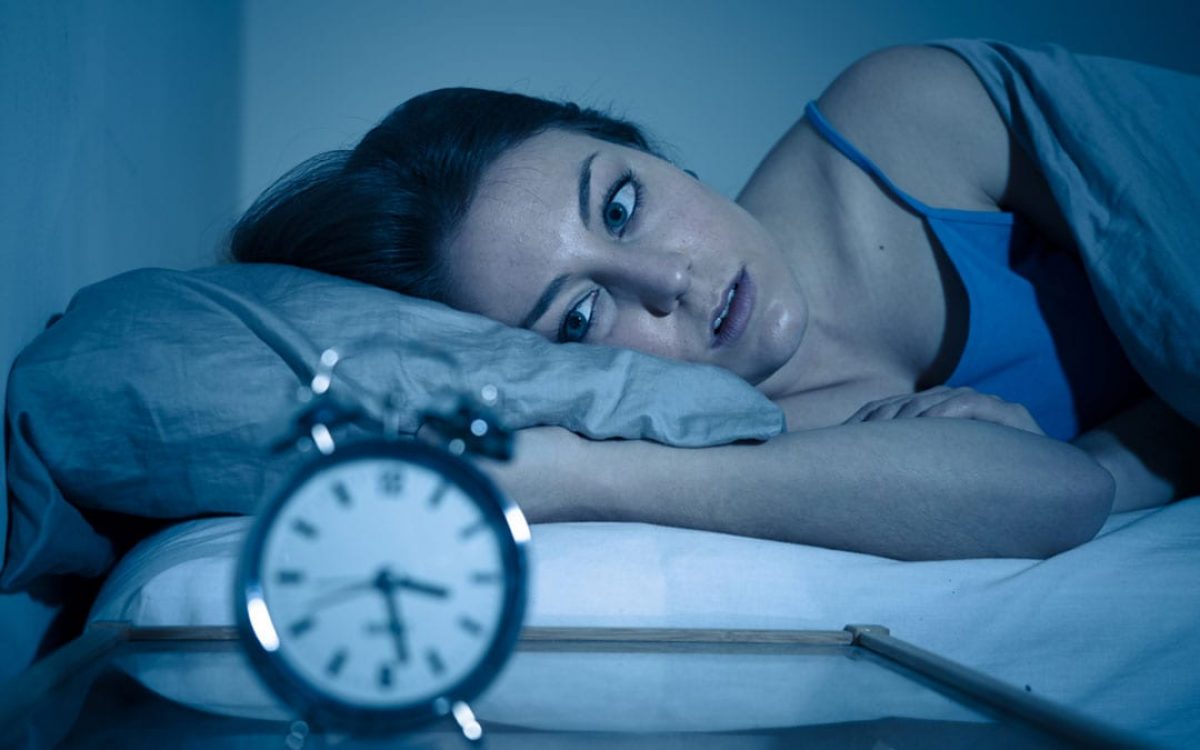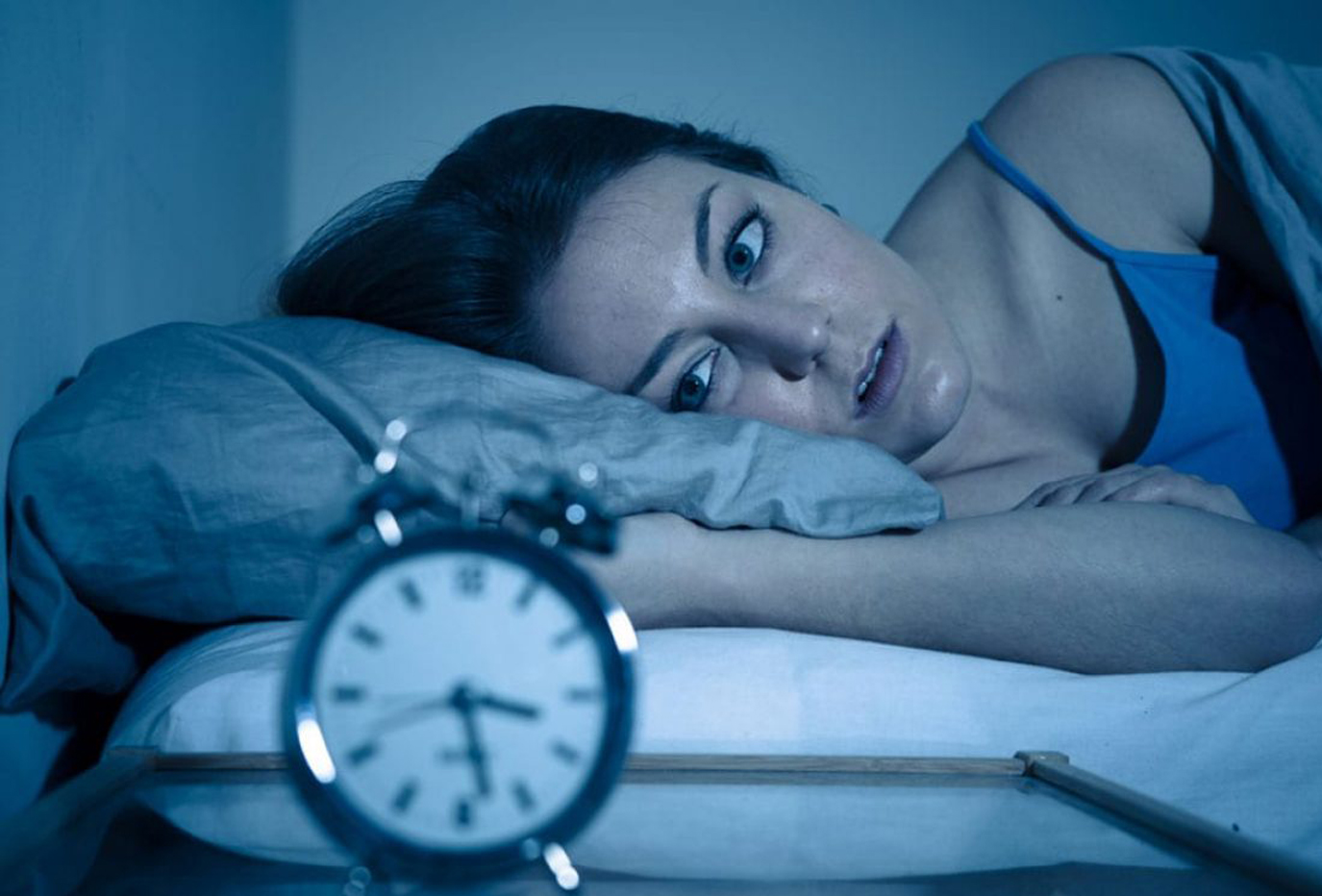Can’t sleep? Know the causes and remedies
Author : Dr.Tulika | 09 Jan 2024

Sleep is very important for a human being to maintain physical and mental health and well-being. The quantity as well as quality of sleep matter to have that feeling of well-being that comes from a sound sleep.
Sleep is important because this is the time when the body heals and repairs itself, it heals the heart and blood vessels. It also rejuvenates the brain and mind, and recharges the body overall. A good sleep refreshes you, gives your mind and body the requisite rest, and keeps many diseases at bay.
A lack of sleep can result in many diseases such as heart disease, hypertension, diabetes as well as psychological and mental problems such as anxiety and depression.
On an average, adults need at least 7 – 9 hours of good quality sleep, though this time period varies based upon many other factors.
There are two types of sleep depending on movement of eyeballs during the sleep:
● Rapid eye movement sleep (REM) – This is a light sleep, and dreams occur in this phase of sleep
● Non Rapid eye movement sleep (NREM) – this is the deep sleep where there is no dreaming. Nightmares may occur during this phase but usually there is no recollection.
Both these phases occur alternately in 3 -5 cycles during a normal night time sleep.
What is insomnia?
Insomnia is a sleep disorder in which it is difficult to fall asleep, frequent waking up during night sleep or difficult to fall back to sleep once awakened during the night. This leads to daytime tiredness, sleepiness, lack of energy, fatigue and lack of concentration the next day. Excessive irritability can lead to problems at school and work, and difficulties in relationships as well.
There are two types of insomnia:
● Short term insomnia – this one lasts for days or weeks
● Chronic insomnia – this one occurs at least thrice a week for more than three months.
Insomnia is very common and affects about 33 -50% of adult population.
What are the causes of insomnia?
Causes of insomnia include:
1. Stress – any stress at work place or at home can lead to a poor quality and quantity of sleep
2. Psychiatric problems such as anxiety and depression
3. Unhealthy life style and unhealthy diet habits –lack of physical activity and excessive junk food
4. Hormonal problems that occur during pregnancy, menstruation, menopause etc
5. Chronic pain causing conditions
6. Gastrointestinal problems like chronic diarrhea or heart burn
7. Patients with long standing debilitating diseases such as cancer, diseases like hyperthyroidism etc.
8. Drug addiction, alcohol addiction, Nicotine addiction
9. Excessive caffeine consumption
10. Certain medications which have insomnia as a side-effect. Many anti-psychotic medications cause excessive day time somnolence leading to insomnia at night. Others include corticosteroids, alpha-blockers, beta-blockers, certain antidepressants, certain anti-hypertensives etc.
11. Neurological diseases such as Alzheimer’s disease or Parkinson’s disease.
12. Miscellaneous causes – Sleep apnoea, restless leg syndrome.
Following are the people at risk for developing insomnia
1. Female sex
2. Pregnant females
3. Age more than 60 years
4. Hormonal changes like perimenopausal syndrome (PMS)
5. Alcoholics/drug addicts
6. Psychiatric patients
What are the remedies for insomnia?
1. Cognitive behavioural therapy (CBT) – CBT is a structured psychological behavior therapy that helps to analyse, identify and replace the thoughts and behaviours which are found to cause the poor quality and quantity of sleep. This therapy focuses deeply on identifying cause of insomnia through the process rather than just causing sleepiness without addressing the underlying cause.
2. Medications - Medications are just a short term treatment to overcome insomnia and help us fall asleep. They cause sleepiness and thus help in insomnia. However, unless the underlying cause of insomnia is identified and treated, medications are of not much use in the long term. Secondly, they have their own set of side-effects and hence should be taken only under the doctor’s supervision.
3. Physical activity – Having a healthy lifestyle and a regular physical activity help to reset the biological clock and thus can help reduce insomnia.
4. Meditation – Often, insomnia is the result of thoughts that do not allow the person to go to sleep. Meditation helps to calm the body and mind and take control of the mind to remove the troubling thoughts, and thus can aid in falling asleep. Mindfulness meditation makes one conscious of the thoughts entering the mind as well as the feelings and sensations going through the body.
5. Yoga and Pranayam – regular practice of Yoga and pranayam or breathing exercises also helps to calm the mind, soothe and relax the body and thus help in reducing insomnia.
6. Music therapy – Music can soothe the mind and help get rid of thoughts as one gets lost in the beautiful melodies. Slow, soothing and classical music is best listened to before going to bed. Loud music with heavy beats should be avoided.
7. Sleep hygiene – Sleep hygiene is a practice that was developed in the 1970’s to help people with mild to moderate insomnia. Even though the use of sleep hygiene is labeled as limited and nonconclusive as of 2021, the recommendations for developing a good sleep hygiene seem to be important for a peaceful sleep. They include:
● Forming a regular schedule for sleeping
● Avoiding daytime naps
● Avoiding excessive mental or physical exercise near the time for bed
● Trying to calm the mind while preparing to sleep
● Avoiding exposure to bright lights before sleeping
● Avoiding listening to loud and harsh music before sleeping.
● Avoiding alcohol, nicotine or caffeine before bedtime
● Creating a dark and peaceful environment to sleep in.
Thus, sleep is one of our basic requirements, and any disruption to the quality or quantity of sleep can lead to disturbances in the entire body as well as to the mind. Maintaining good and healthy life style and food habits, and avoiding the triggers that cause insomnia is very important to have a good and peaceful night sleep.




